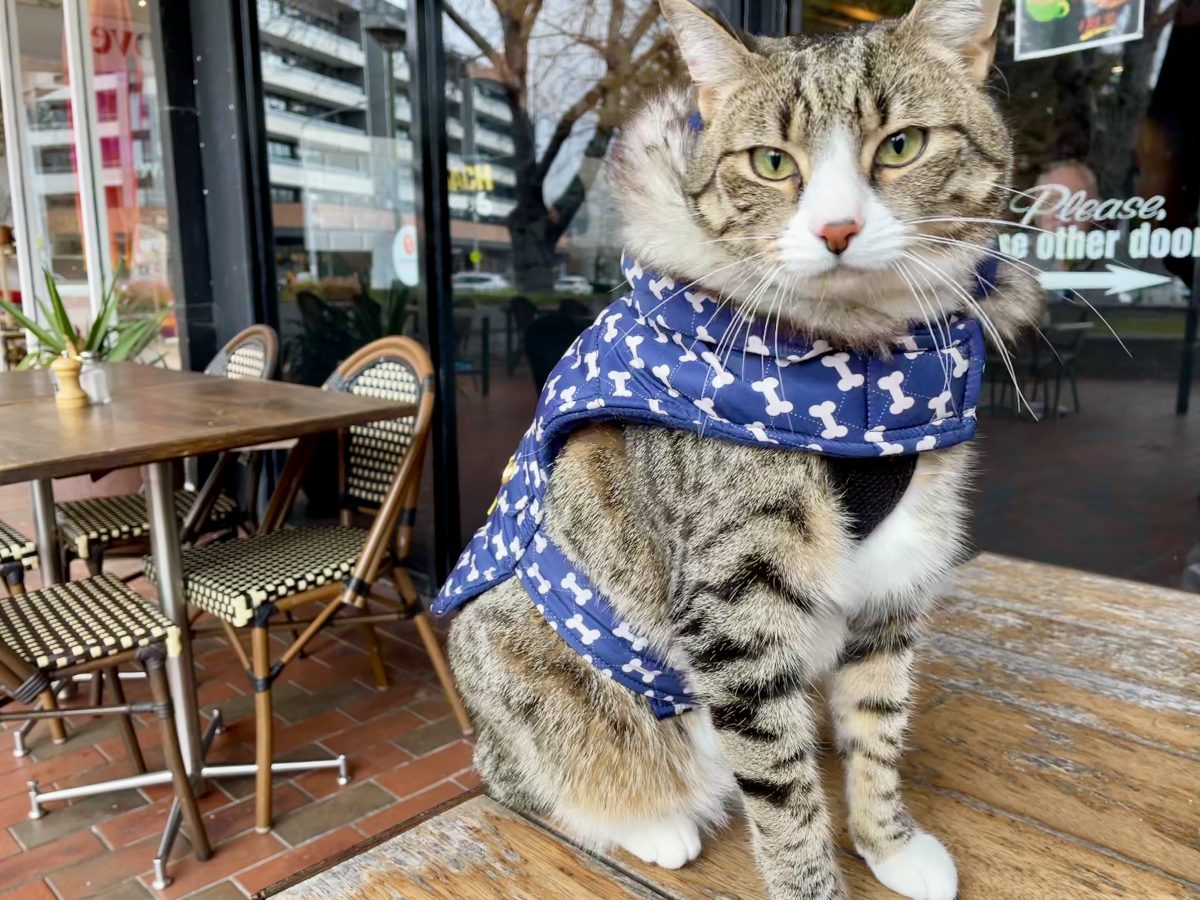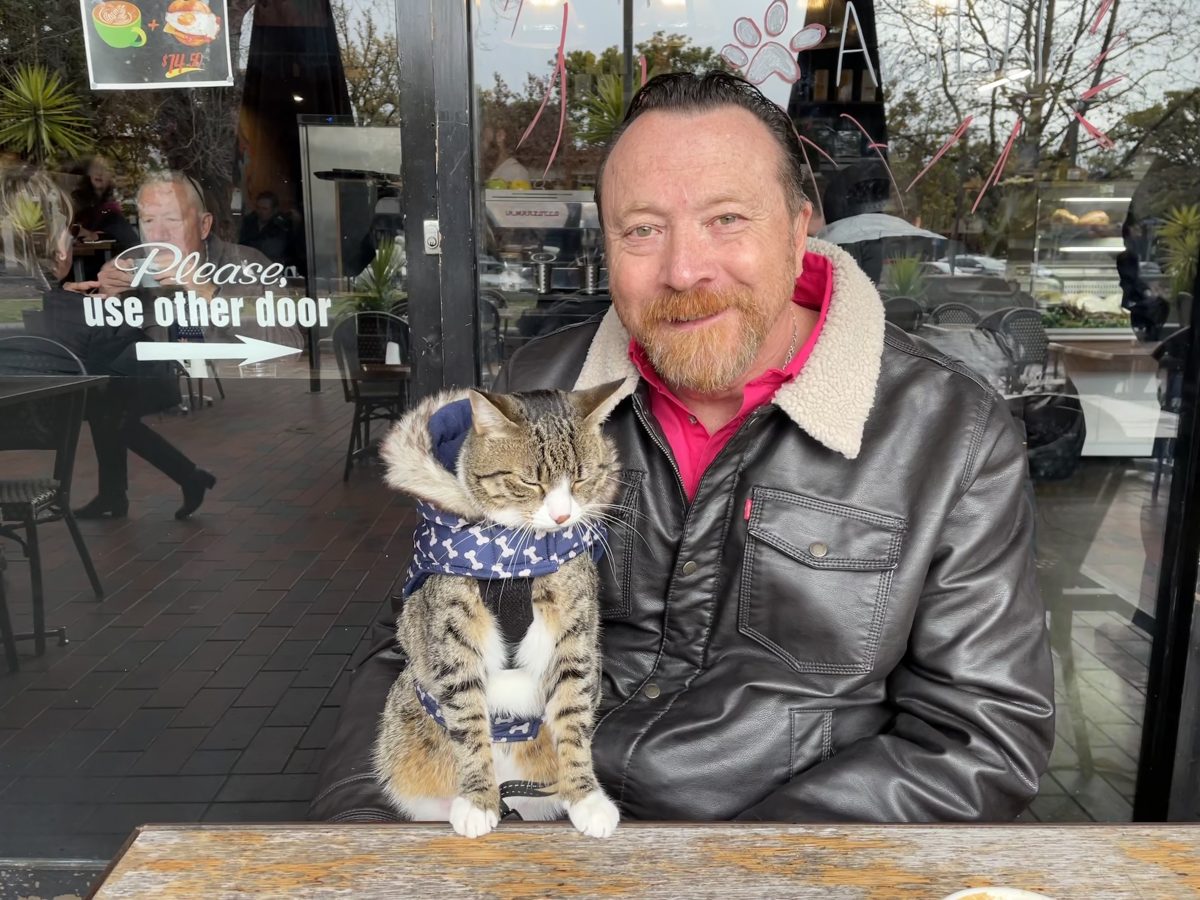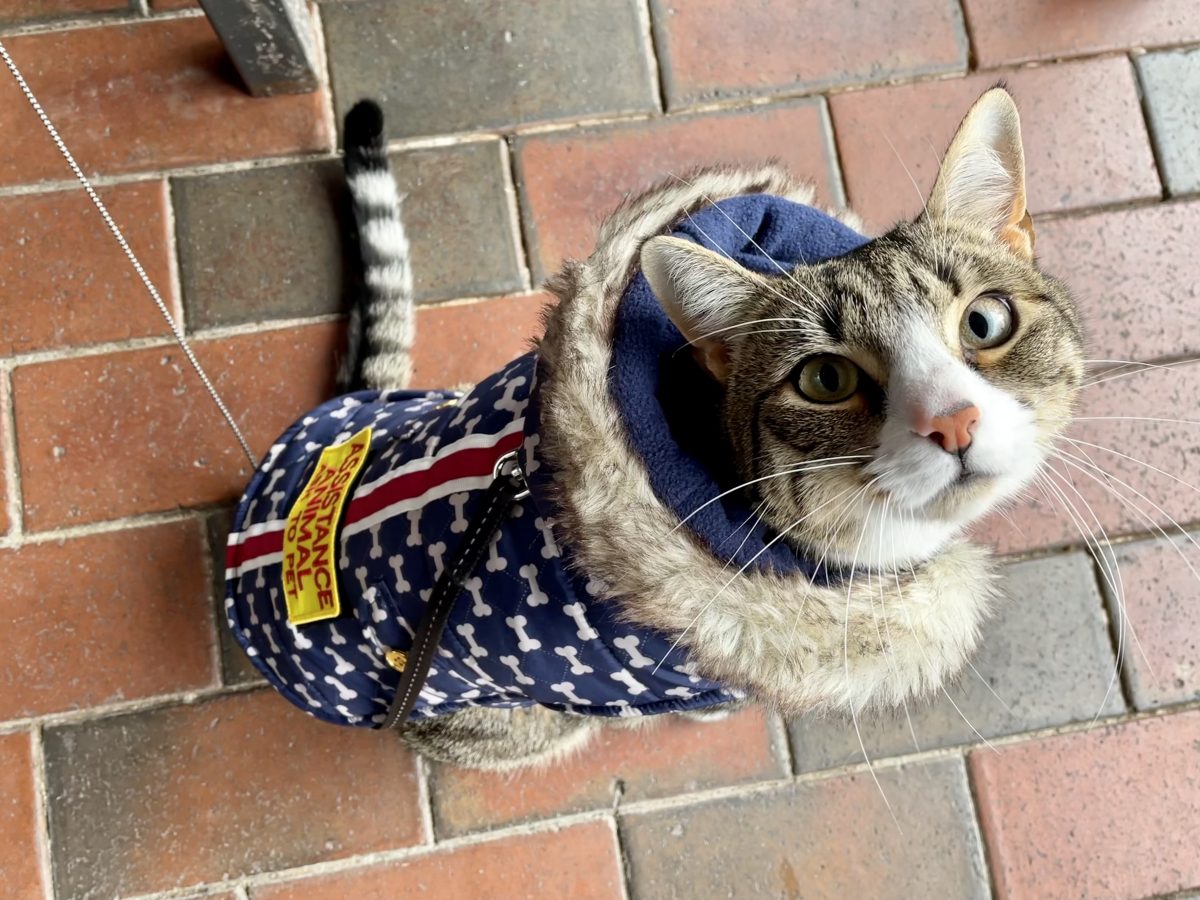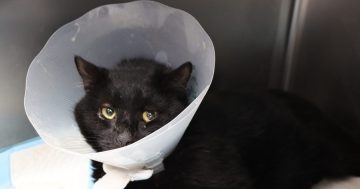
Bandit is well acquainted with Canberra and Queanbeyan cafes – she isn’t usually allowed on the tables. Photos: Lizzie Waymouth.
It’s not every day you visit a Canberra cafe and see a cat on a leash sitting calmly with its owner. But Bandit is no ordinary cat. In fact, she’s among the first registered assistance cats in Australia.
Bandit’s owner, known by the nickname ‘Boat’, was close to retiring from a career in law enforcement and considering getting another cat after spending several years without any pets. A life-long animal lover, Boat was easily persuaded when a friend said she had some kittens she was fostering.
“So I got [Bandit], and as soon as I got her out into my place, her personality just blossomed,” Boat explained.
“She became very independent, very alert.”
Boat, who lives in Queanbeyan, started training her to go outside with him, which she immediately loved.
“We started adventuring around the place, going to markets and all those sorts of things.”
Boat also started taking Bandit with him to his medical appointments. He was diagnosed with PTSD as a result of the nature of his work and his psychiatrist noticed the positive impact animals have had on him throughout his life. It was soon recommended that he have a service animal to help him manage his PTSD. It was the role Bandit was born to play.
“[The psychiatrist] said your pet has basically been your service animal for ages.”
Boat then started looking into how he could train her as a service animal, which involved fulfilling a number of criteria, including teaching her pressure therapy – a common therapy used to calm someone with anxiety by placing pressure on the body.

Boat says Bandit has helped immeasurably with the social isolation that PTSD can bring.
Boat went about trying to register Bandit as a service animal and soon discovered “none of them knew how to deal with anything apart from a dog”. He even found it wasn’t possible to get a patch printed for Bandit’s jackets to say she was an assistance animal – everything was designed just for dogs, so he had one custom-made.
He applied to register her with both the ACT and NSW governments. NSW was the first to approve, but only after two rejected applications.
The ACT application is still yet to be approved four months later, but he is hopeful there will be some movement soon. “I’ve been in communication backwards and forwards,” he said.
The obstacles Boat has faced only go to show that people aren’t used to the idea of a cat as a service animal, even though any animal can be an assistance animal under the Disability Discrimination Act. He’s only aware of one or two other registered assistance cats elsewhere in Australia.
“I think she’s definitely the first in NSW, and she’s definitely going to be the first in the ACT … and we believe she’s one of the first in the country.”
While Bandit is generally received well wherever she goes – “normally [people are] quite amazed first and foremost” – occasionally they come across situations where managers or security guards don’t react so positively or are uncertain how to respond to her, which he says is at least partly because “they’ve never seen anything like it before”.
“The thing with [Bandit] is a lot of the beauty about her and doing this sort of stuff is it changes people’s attitude, which is really good.”
But for the most part, Bandit is a much-loved visitor of many shops, cafes and markets in the Capital region. She also recently accompanied Boat to a concert in the city: “The musician was quite happy about it. He said, ‘She was quite attentive to me,’ and I was like, ‘Yeah, that’s cos she must have liked your music’.”

Bandit is always on the clock when she’s out and about with Boat, but she has time to pose for a photo.
Boat hopes that by sharing his story, more people will be aware that it’s not just dogs that can be trained as service animals.
“[Bandit’s] a bit trailblazing in what she’s doing,” he said.
“I’m hoping that by going through these processes, it’s going to change how the government looks at it.”
He also wants more people to know it’s okay to admit they need support and to find ways to improve things, whether getting an assistance animal or seeking help in other ways.
“A lot of people who have other conditions, not just PTSD, that are quite severe and significant, they’d never try to figure out whether there is a way for them to actually get their cat – their best friend and their companion – to be officially recognised so they can take them to the club where they go, or to lunch, or wherever it may be.
“A lot of the times it’s men – men are really, really bad at it,” he admits, adding that Bandit has given him a reason to leave the house, eased his anxiety in social situations, and brought him joy by seeing how happy other people are when they see her.
“What I’ve discovered is that she brings so much of that to other people as well,” he said. “That’s a golden lining for me.”





















